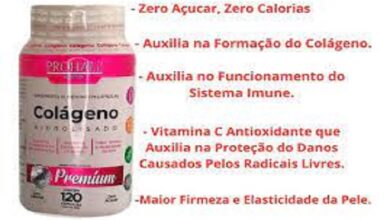Discover the Power of Vitamin E for Optimal Health and Wellbeing

Vitamin E
Vitamin E is a fat-soluble nutrient that plays a critical role in maintaining optimal health and wellbeing. This essential vitamin is made up of eight compounds, four tocopherols & four tocotrienols, which work together to protect cells from oxidative damage caused by , free radicals. Vitamin E is also an important nutrient for immune system function, skin health, and the prevention of chronic diseases such as cancer, heart disease, & diabetes.
The Health Benefits of Vitamin E
Vitamin E is a powerful antioxidant that helps to protect cells from oxidative stress. Free radicals are unstable molecules that can cause damage to cells and lead to chronic diseases such as cancer, heart disease, and Alzheimer’s. Vitamin E helps to neutralize free radicals and prevent damage to cell membranes and DNA.
Immune System Function
Vitamin E plays an important role in supporting immune system function. This nutrient helps to regulate the production of immune cells, such as T cells and B cells, and enhances their ability to fight off infection and disease.
Skin Health
Vitamin E is also important for maintaining healthy skin. This nutrient helps to protect the skin from UV damage, reduce inflammation, and promote wound healing. Vitamin E is also used in many skincare products to improve the overall appearance of the skin.
Cardiovascular Health
Vitamin E has been shown to have a positive effect on cardiovascular health. This nutrient helps to reduce inflammation in the body, which is a major risk factor for heart disease. Vitamin E also helps to prevent, the oxidation of LDL cholesterol, which can lead to the formation of plaque in the arteries.
Cancer Prevention
Vitamin E has been shown to have anti-cancer properties. This nutrient helps to protect cells from DNA damage, inhibit the growth of cancer cells, and enhance the body’s immune, response to cancer. Studies have found that people who consume higher levels of vitamin E have a lower risk of developing certain types of cancer, including lung, prostate, and breast cancer.
The Nutritional Sources of Vitamin E
Nuts and Seeds: Nuts and seeds are one of the best sources of vitamin E. Almonds, sunflower seeds, and hazelnuts are particularly high in this nutrient.
Vegetable Oils :Vegetable oils, such as olive oil and sunflower oil, are also a good source, of vitamin E. However, it’s important to choose high-quality oils that have not been refined or processed.
Green Leafy Vegetables: Green leafy vegetables, such as spinach, kale, and broccoli, are also a good source of vitamin E. These vegetables are also.. rich in other important nutrients, such as vitamins A, C, and K, as well as fiber.
Fortified Foods: Many foods, such as cereals and bread, are fortified with vitamin E. However, it’s important to read the labels carefully, as some fortified foods may contain other additives and preservatives.
Conclusion
In conclusion, vitamin E is an essential nutrient that plays a critical role in maintaining optimal health and wellbeing. This powerful antioxidant has a wide range of health benefits, including supporting immune system function, promoting skin health, and preventing chronic diseases such as cancer, heart disease, and diabetes. To ensure that, you’re getting enough vitamin E, in your diet, be sure to include plenty of nuts, seeds, vegetables, and high-quality oils in your meals. With a healthy and balanced diet, you can harness





